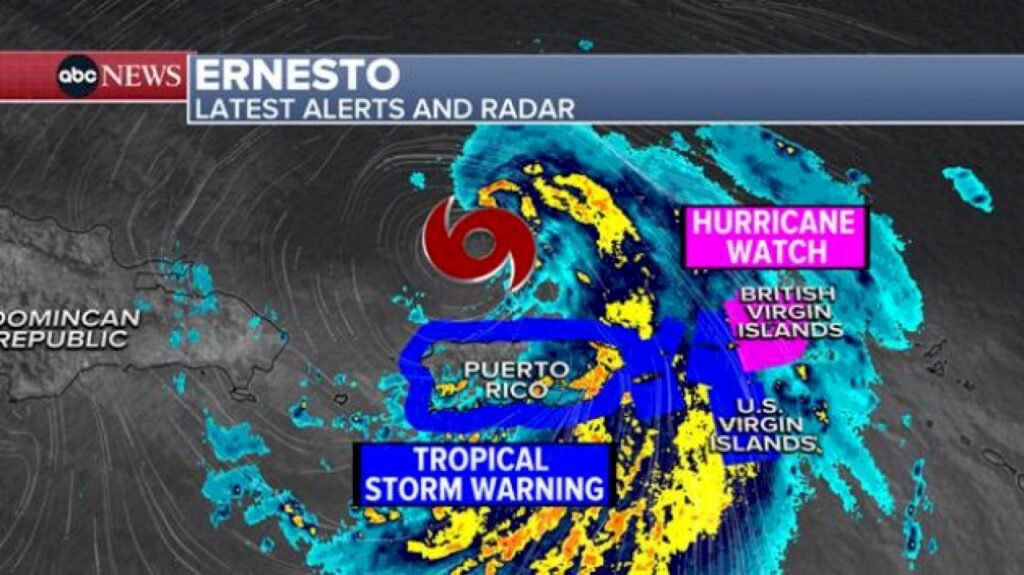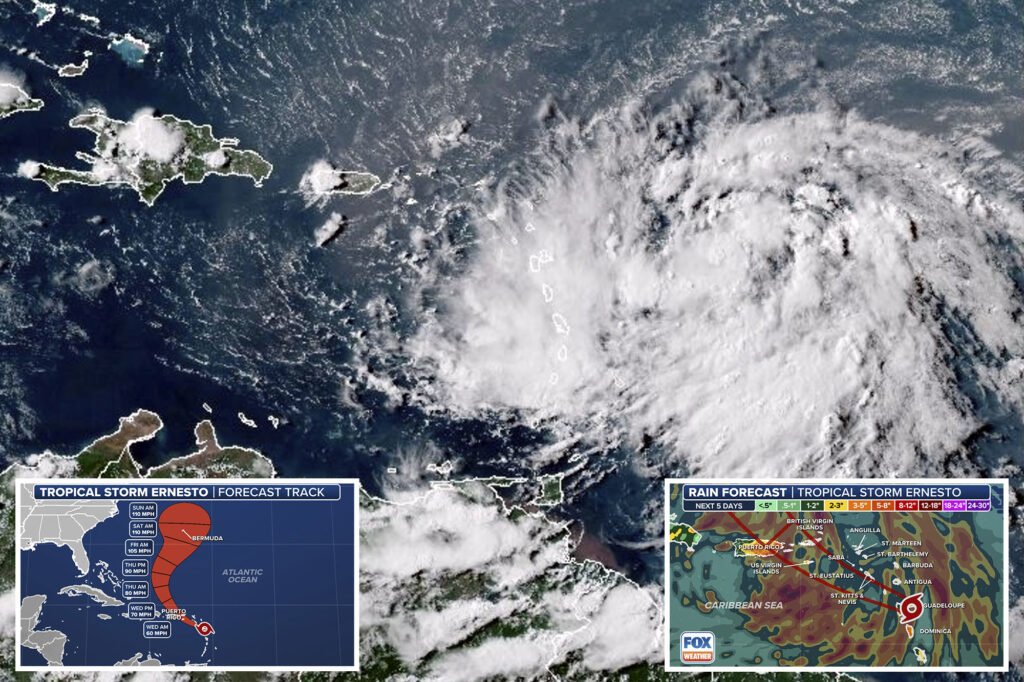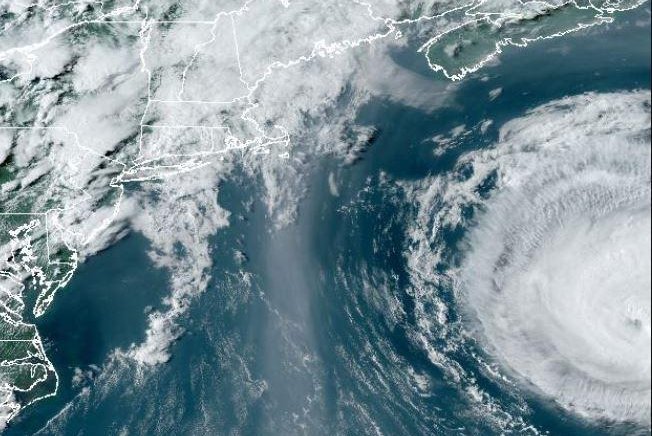Is your region in a state of emergency due to a recent natural disaster? Learn more about the disaster declaration for Tropical Storm Ernesto in the Virgin Islands.

Understanding Emergency Declaration
An Emergency Declaration has been issued for the Virgin Islands due to Tropical Storm Ernesto. This declaration signifies the severity of the situation and the need for immediate response and assistance.
In this article, you will find detailed information about the disaster declaration and its implications for the affected region.

Disaster Summary: Tropical Storm Ernesto
Tropical Storm Ernesto is the primary cause of the emergency declaration in the Virgin Islands. Understanding the characteristics and impacts of the storm is crucial in assessing the level of response needed for recovery efforts.
Let’s delve deeper into the specifics of Tropical Storm Ernesto and its effects on the Virgin Islands.
What Is a Tropical Storm?
A tropical storm is a type of cyclone that originates in tropical or subtropical regions and exhibits organized thunderstorms with a defined surface circulation. These storms can bring heavy rainfall, strong winds, and storm surges, leading to significant damage and disruption.
Tropical Storm Ernesto has been classified as a significant weather event, warranting an emergency declaration in the Virgin Islands.

Declarations and Dates
Declarations and dates associated with the disaster provide essential information about the timeline and scope of the emergency response efforts. Understanding these details can help stakeholders coordinate resources and support effectively.
Let’s explore the key declarations and dates related to the disaster caused by Tropical Storm Ernesto in the Virgin Islands.
Declaration Type: Emergency Declaration
The declaration type for the disaster in the Virgin Islands is an Emergency Declaration. This classification indicates the urgent need for federal assistance and resources to address the impacts of Tropical Storm Ernesto effectively.
The Emergency Declaration underscores the severity and immediacy of the situation, prompting swift action to mitigate the storm’s effects and support the affected community.
Declaration Date: August 18, 2024
The official Declaration Date for the disaster caused by Tropical Storm Ernesto in the Virgin Islands is August 18, 2024. This date marks the formal recognition of the emergency situation and triggers the activation of response and recovery mechanisms at local, state, and federal levels.
Understanding the Declaration Date is essential for coordinating relief efforts, assessing damages, and implementing recovery plans in a timely manner.
Incident Begin Date: August 13, 2024
The Incident Begin Date, set at August 13, 2024, signifies the initiation of Tropical Storm Ernesto’s impacts on the Virgin Islands. This date serves as a reference point for evaluating the duration and intensity of the disaster, guiding response efforts and resource allocation accordingly.
Knowing when the disaster began helps authorities and relief organizations plan for immediate and long-term assistance to affected individuals and communities.
Entry Date and Update Date
The Entry Date and Update Date provide information on when the disaster declaration was officially entered into the system and last updated, respectively. These dates ensure accurate record-keeping and transparency in the emergency response process, facilitating accountability and efficiency in resource management.
The constant monitoring and updating of disaster information enable stakeholders to stay informed and adapt their strategies based on evolving conditions and needs.

Financial Assistance and Obligations
Financial assistance plays a critical role in supporting disaster-affected communities and individuals in their recovery and rebuilding efforts. Understanding the various types of funding and obligations associated with a disaster declaration is essential for ensuring efficient and equitable distribution of resources.
Let’s dive into the financial aspects of the disaster declaration for Tropical Storm Ernesto in the Virgin Islands.
Total Amount IHP Approved: $0.00
The Total Amount Individual and Households Program (IHP) Approved for the disaster is $0.00. This figure represents the initial financial support allocated for assisting individuals and households affected by Tropical Storm Ernesto in the Virgin Islands.
The IHP aims to provide essential resources for temporary housing, home repairs, and other disaster-related expenses to help survivors recover and stabilize their living situations.
Total Amount HA Approved: $0.00
The Total Amount Housing Assistance (HA) Approved stands at $0.00 for the ongoing disaster response in the Virgin Islands. HA funding supports eligible individuals and families in repairing, rebuilding, or replacing damaged homes, ensuring safe and habitable living conditions post-disaster.
Access to HA resources is vital for addressing the immediate shelter needs of disaster survivors and facilitating their transition to permanent housing solutions.
Total Amount ONA Approved: $0.00
The Total Amount Other Needs Assistance (ONA) Approved remains at $0.00 for the disaster caused by Tropical Storm Ernesto. ONA funding caters to disaster survivors’ miscellaneous needs, such as medical expenses, personal property replacement, and other essential items not covered by other assistance programs.
ONA assistance plays a crucial role in supporting individuals and households in resuming normalcy following a disaster and overcoming financial challenges.
Total Obligated Amount PA Approved: $0.00
The Total Obligated Amount for Public Assistance (PA) Approved is currently at $0.00 for the disaster in the Virgin Islands. PA funding supports state, local, tribal, and territorial governments, as well as certain nonprofit organizations, in repairing or replacing public infrastructure and facilities damaged by Tropical Storm Ernesto.
Investing in PA projects is essential for restoring critical public services, ensuring community resilience, and fostering recovery and redevelopment in disaster-affected areas.
Total Number IA Approved: 0.00
The Total Number of Individuals and Households Approved for assistance in the Virgin Islands currently stands at 0.00. This metric reflects the total number of disaster survivors eligible for Individual Assistance (IA) programs, showcasing the scope and scale of support needed for affected populations.
Efficiently processing IA applications and providing tailored assistance to eligible individuals and households are crucial for promoting recovery and addressing the diverse needs of disaster survivors.
Total Amount Obligated Amount Cat AA: $0.00
The Total Amount Obligated Amount for Category AA expenses is $0.00 in the aftermath of Tropical Storm Ernesto. Category AA funding covers emergency protective measures and response activities undertaken by state, local, tribal, and territorial entities to safeguard lives, property, and critical infrastructure during and immediately after a disaster.
Allocating resources to Category AA expenses is vital for enhancing disaster preparedness, response capabilities, and community safety in the face of natural hazards and emergencies.
Total Amount Obligated Amount Cat C2G: $0.00
The Total Amount Obligated Amount for Category C2G outlays remains at $0.00 for the ongoing disaster response efforts in the Virgin Islands. Category C2G funding supports hazard mitigation projects and initiatives aimed at reducing risks, vulnerabilities, and damages associated with future disasters and enhancing community resilience and sustainability.
Investing in Category C2G activities is key to building a more disaster-resilient environment, protecting lives and property, and fostering long-term recovery and development.

Conclusion
The disaster declaration for Tropical Storm Ernesto in the Virgin Islands underscores the critical need for emergency response and assistance in the face of natural disasters. By understanding the specifics of the declaration, disaster summary, financial assistance, and associated obligations, stakeholders can effectively coordinate relief efforts, allocate resources, and support disaster-affected communities in their recovery and rebuilding endeavors.
Stay informed, stay prepared, and stay resilient in the face of disaster challenges. Your commitment to community well-being and safety is invaluable in shaping a more resilient and sustainable future for all.
